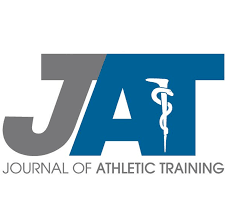Context
The King-Devick (KD) test has received considerable attention in the literature as an emerging concussion assessment. However, important test psychometric properties remain to be addressed in large-scale independent studies.
Objective
To assess (1) test-retest reliability between trials, (2) test-retest reliability between years 1 and 2, and (3) reliability of the 2 administration modes.
Design
Cross-sectional study.
Setting
Collegiate athletic training facilities.
Patients or Other Participants
A total of 3248 intercollegiate student-athletes participated in year 1 (male = 55.3%, age = 20.2 ± 2.3 years, height = 1.78 ± 0.11 m, weight = 80.7 ± 21.0 kg) and 833 participated in both years.
Main Outcome Measure(s)
Time, in seconds, to complete the KD error free. The KD test reliability was assessed between trials and between annual tests over 2 years and stratified by test modality (spiral-bound cards [n = 566] and tablet [n = 264]).
Results
The KD test was reliable between trials (trial 1 = 43.2 ± 8.3 seconds, trial 2 = 40.8 ± 7.8 seconds; intraclass correlation coefficient [ICC] (2,1) = 0.888, P < .001), between years (year 1 = 40.8 ± 7.4 seconds, year 2 = 38.7 ± 7.7 seconds; ICC [2,1] = 0.827, P < .001), and for both spiral-bound cards (ICC [2,1] = 0.834, P < .001) and tablets (ICC [2,1] = 0.827, P < .001). The mean change between trials for a single test was −2.4 ± 3.8 seconds. Although most athletes improved from year 1 to year 2, 27.1% (226 of 883) of participants demonstrated worse (slower) KD times (3.2 ± 3.9 seconds) in year 2.
Conclusions
The KD test was reliable between trials and years and when stratified by modality. A small improvement of 2 seconds was identified with annual retesting, likely due to a practice effect; however, 27% of athletes displayed slowed performance from year 1 to year 2. These results suggest that the KD assessment was a reliable test with modest learning effects over time and that the assessment modality did not adversely affect baseline reliability.
Summary Points
- The King-Devick test was a reliable test with a modest learning effect over time.
- The assessment modality did not adversely affect baseline reliability.
- Improvements in time between trial 1 and trial 2 reinforce the recommendation that 2 trials are needed for a baseline score.
- Among otherwise healthy collegiate student-athletes, 27% scored worse (i.e. ‘‘failed’’) their year 2 baseline test, emphasizing the need for a multifaceted concussion-assessment battery.

